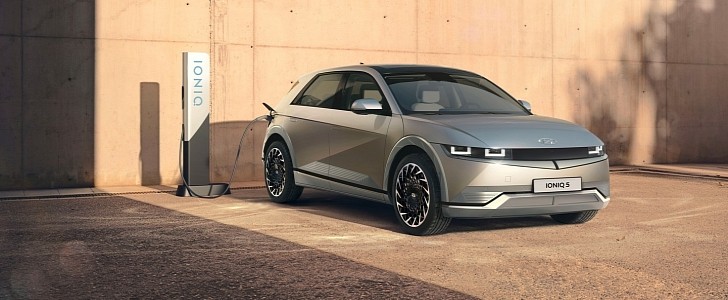Fossil fuel is a key component of the modern world. From coal to gas and petroleum, every single one of them has a role in the bigger picture of things. Fossil fuel, however, isn’t much to the liking of legislators from the Old Continent because Europe aims to be climate-neutral by 2050.
In preparation for this eco-friendly scenario, the European Commission intends to roll out the Euro 7 regulation for passenger vehicles. Expected to roll out in 2025, the EU-7 standard has been labeled a “de facto ban” on fossil-fuel vehicles by a German trade association by the name of VDMA.
Despite the Dieselgate scandal, Volkswagen doesn’t believe the EU-7 regulation is feasible either. “These scenarios would only be possible with far-reaching technical measures that are complex and costly,” said the German carmaker in an emailed statement to EURACTIV. “A comprehensive expansion of exhaust gas after treatment combined with the need for hybridization would make vehicles significantly more expensive.”
The German automaker may be right. First and foremost, the difference between an ICE-only car and a hybrid powertrain for the same make and model is huge for many customers. Toyota serves as the perfect case in point with the Corolla Hatchback, which costs €21,730 (or $26,155) for the 1.2-liter turbo and €27,780 ($33,440) for the 1.8-liter hybrid.
Reading between the lines, the Volkswagen Group is also referring to the current limitations of the charging infrastructure in Europe. Waiting for your turn at the charging station, waiting at least an hour to charge, and range anxiety are the biggest problems the European Union and automakers have to address in order to make EVs the alternative to fossil-fuel vehicles.
Even the European Automobile Manufacturers Association has criticized the EU-7 standard, which requires a decrease of 60 to 90 percent of emissions. It’s not a realistic objective, which is why the suits in Brussels should work closely with the automakers in deciding the future of internal combustion.
Despite the Dieselgate scandal, Volkswagen doesn’t believe the EU-7 regulation is feasible either. “These scenarios would only be possible with far-reaching technical measures that are complex and costly,” said the German carmaker in an emailed statement to EURACTIV. “A comprehensive expansion of exhaust gas after treatment combined with the need for hybridization would make vehicles significantly more expensive.”
The German automaker may be right. First and foremost, the difference between an ICE-only car and a hybrid powertrain for the same make and model is huge for many customers. Toyota serves as the perfect case in point with the Corolla Hatchback, which costs €21,730 (or $26,155) for the 1.2-liter turbo and €27,780 ($33,440) for the 1.8-liter hybrid.
Reading between the lines, the Volkswagen Group is also referring to the current limitations of the charging infrastructure in Europe. Waiting for your turn at the charging station, waiting at least an hour to charge, and range anxiety are the biggest problems the European Union and automakers have to address in order to make EVs the alternative to fossil-fuel vehicles.
Even the European Automobile Manufacturers Association has criticized the EU-7 standard, which requires a decrease of 60 to 90 percent of emissions. It’s not a realistic objective, which is why the suits in Brussels should work closely with the automakers in deciding the future of internal combustion.






























